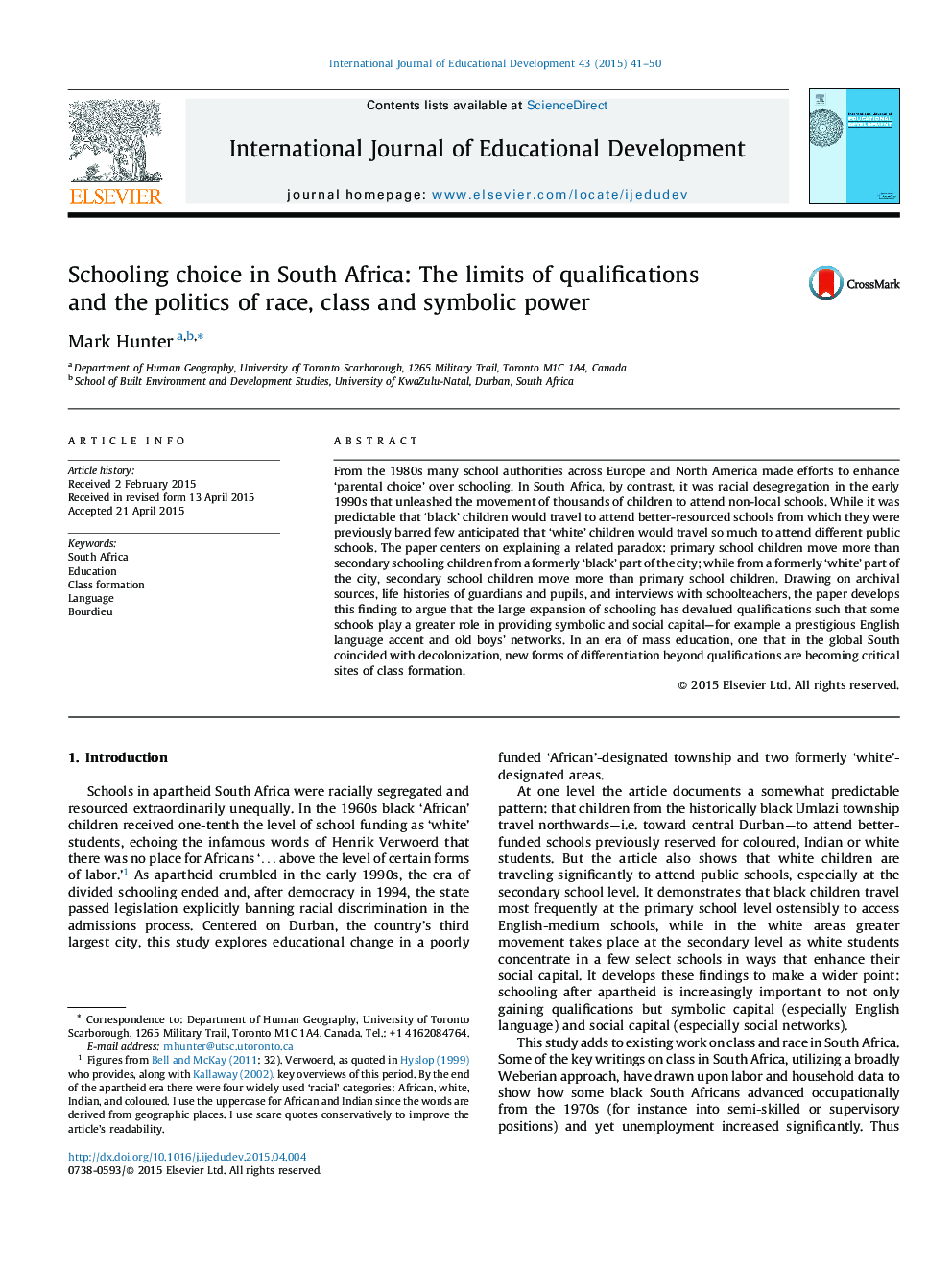| Article ID | Journal | Published Year | Pages | File Type |
|---|---|---|---|---|
| 356025 | International Journal of Educational Development | 2015 | 10 Pages |
From the 1980s many school authorities across Europe and North America made efforts to enhance ‘parental choice’ over schooling. In South Africa, by contrast, it was racial desegregation in the early 1990s that unleashed the movement of thousands of children to attend non-local schools. While it was predictable that ‘black’ children would travel to attend better-resourced schools from which they were previously barred few anticipated that ‘white’ children would travel so much to attend different public schools. The paper centers on explaining a related paradox: primary school children move more than secondary schooling children from a formerly ‘black’ part of the city; while from a formerly ‘white’ part of the city, secondary school children move more than primary school children. Drawing on archival sources, life histories of guardians and pupils, and interviews with schoolteachers, the paper develops this finding to argue that the large expansion of schooling has devalued qualifications such that some schools play a greater role in providing symbolic and social capital—for example a prestigious English language accent and old boys’ networks. In an era of mass education, one that in the global South coincided with decolonization, new forms of differentiation beyond qualifications are becoming critical sites of class formation.
